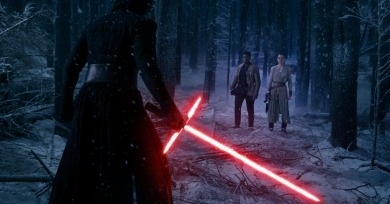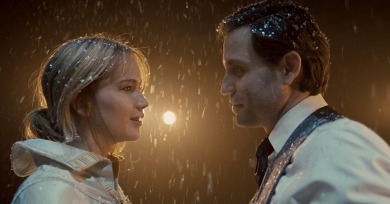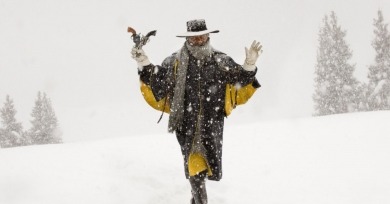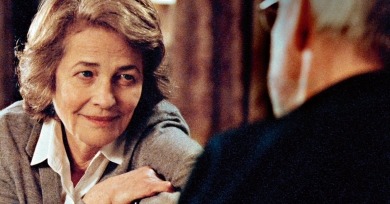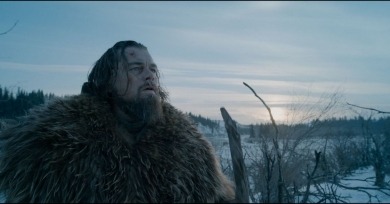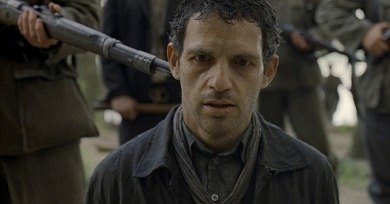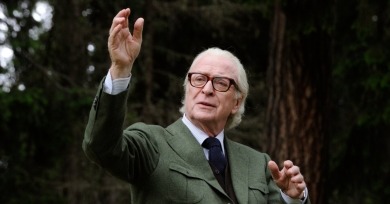Reviews
The plot of The Treasure revolves around people digging for riches in a backyard, lacking the means for more expansive adventures, and much of its humor derives from watching grown men bring their adult self-seriousness and anxiety to what is essentially a childhood pastime.
The evident work that went into rendering the details of every banal gesture complements the material, for crabbed Michael is a man for whom every piece of common courtesy is an agonizing chore.
Much of Where to Invade Next isn’t really that funny, as it mostly contains groaners straight out of the sort of “FWD: FWD: RE: BUSH JOKES” emails you’d see in your inbox circa 2003.
Movies are made of proven entities to minimize risk, but that transfers the stakes from making something good to making something that meets the expectations for what it is supposed to be.
Concussion hits the league surprisingly hard, actually; you don’t exit with a rosy view of the deceptive mega-corporation . . . If anything is soft in Concussion, it is the storytelling and conventionalism of the filmmaking.
Rather than finding Russell idling around the same aesthetic cul-de-sac again, Joy is (mostly) a surprisingly straightforward, three-act rise-fall-rise drama that, after an enjoyably all-over-the-place start, becomes increasingly streamlined and focused.
As with Django Unchained, what we now tend to refer to as “America’s troubled racial history” is central to The Hateful Eight, though the racial hang-ups attributed to America are naturally filtered through Tarantino’s own, as surely as the streak of podophilia running through his films is no accident.
The essence of his realism is that he presents his characters to the audience exactly as they would present themselves. Only later, as he begins to decorticate their personalities through his increasingly intimate dramatization of their relationships, will they reveal themselves as they really are.
Emboldened by the critical and popular success of Birdman—that ostensibly invigorating, hugely irritating statement of artistic and aesthetic principles—the director has gone chasing after Herzog, Coppola, Friedkin, and all the other mad, corporate-backed visionaries who’ve dragged movie stars into the jungle, or in this case, the Rockies.
Son of Saul’s insistence on real-time tension means that it’s deliberately cut off from considerations of the bigger picture; what it theoretically gains in trade is a sense of authenticity, which becomes increasingly presumptuous in light of its heavy-handed storytelling and basic lack of dramatic believability.
Although Miguel Gomes has explored nested stories, and has layered and mythologized daily events in his other films, such as Tabu and Our Beloved Month of August, Arabian Nights is a far riskier endeavor than previous efforts.
After breezing along for more than half of its running time, the film takes a turn for the tone-deaf and wrong-footed, never worse than when expressing fraudulent concern for “common people.”
To call this misty, low-risk collection of calculated revelations a high-toned The Bucket List would be a disservice to Rob Reiner.
The Good Dinosaur, like so many animated films, concerns a journey of self-actualization, but it’s also a classic prairie western. The central dinosaur family are reptilian cousins to the homesteaders who might have settled in Oklahoma and lived in hardscrabble isolation in the mid-nineteenth century.



